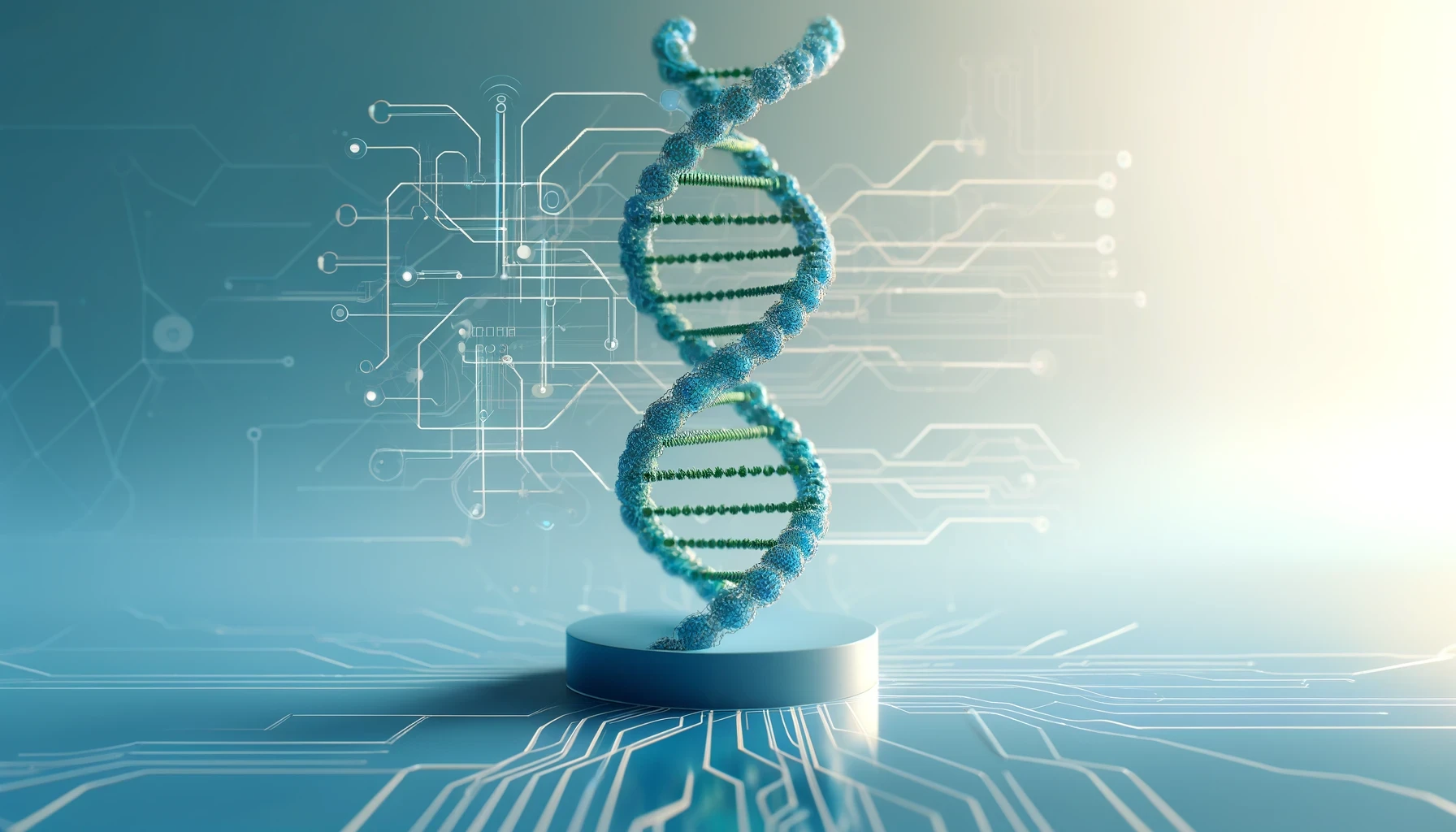Ai Digital Biology
The State of AI at SynBioBeta 2024
The latest developments in generative AI and insights from the conference
[DALL-E]
It’s time to tally up the results of SynBioBeta 2024. This year’s undisputed technology winner is Artificial Intelligence (AI). To put it into perspective: two years ago, there was one session on AI at the SynBioBeta conference. This year, the conference attendees had a chance to see over two dozen talks and breakout sessions on AI, covering everything from generative protein design to foundational DNA models and self-driving labs.
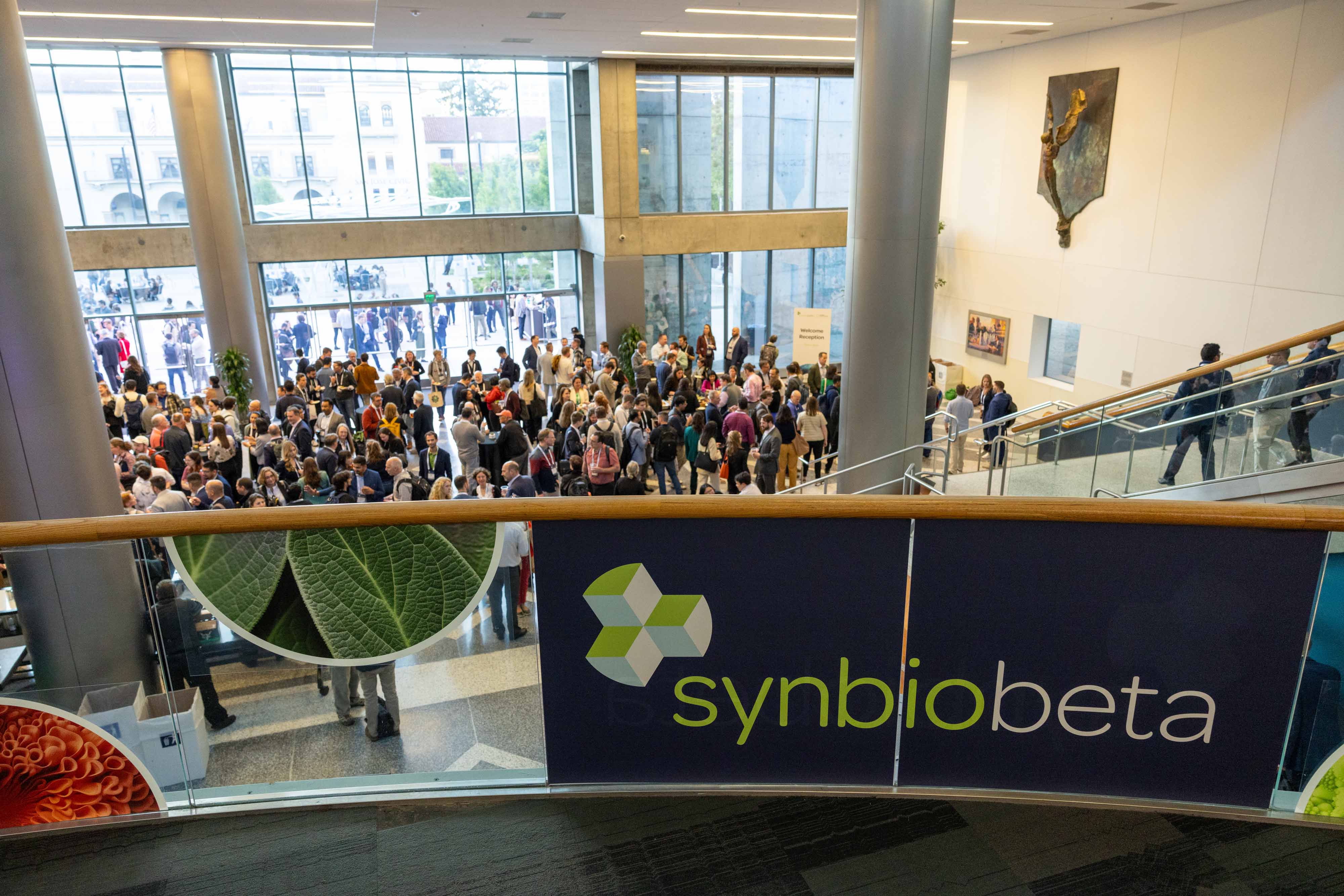
In these sessions, experts discussed the potential of this incredible new technology, the bottlenecks, and hurdles for implementing it, and shared advice on how to successfully navigate the IP landscape of the Brave New World of generative AI. Let’s take a look at some of the highlights.
Cellular Agriculture
Companies developing and using AI and Machine Learning (ML) technologies for food and cellular agriculture applications shared their latest successes at the conference. For example, Shiru announced the launch of its new discovery platform, ProteinDiscovery.ai, which lets users search a database of over 33 million proteins through a simple web-based interface. Two other cellular agriculture startups, Aleph Farms and BioRaptor, teamed up to use AI to lower the cost of cultivated beef.
Accelerating the Development of Therapeutics
A highly anticipated unveiling of AlphaFold 3 from Isomorphic Labs coincided with the SynBioBeta conference. The latest update enables structural prediction of protein, DNA, RNA, and ligand interactions. Expanding the capabilities of AI-aided molecule design bodes well for the field of protein-based therapeutics, which has been transformed by innovations in AI over the last few years.
Sean McClain, CEO of Absci, a pioneer in generative antibody design, hosted a fireside chat discussing the impact of these technologies on the speed and economics of drug discovery and development. In his words, “The technology allowed us to move from finding a needle in a haystack to creating a needle ourselves.”
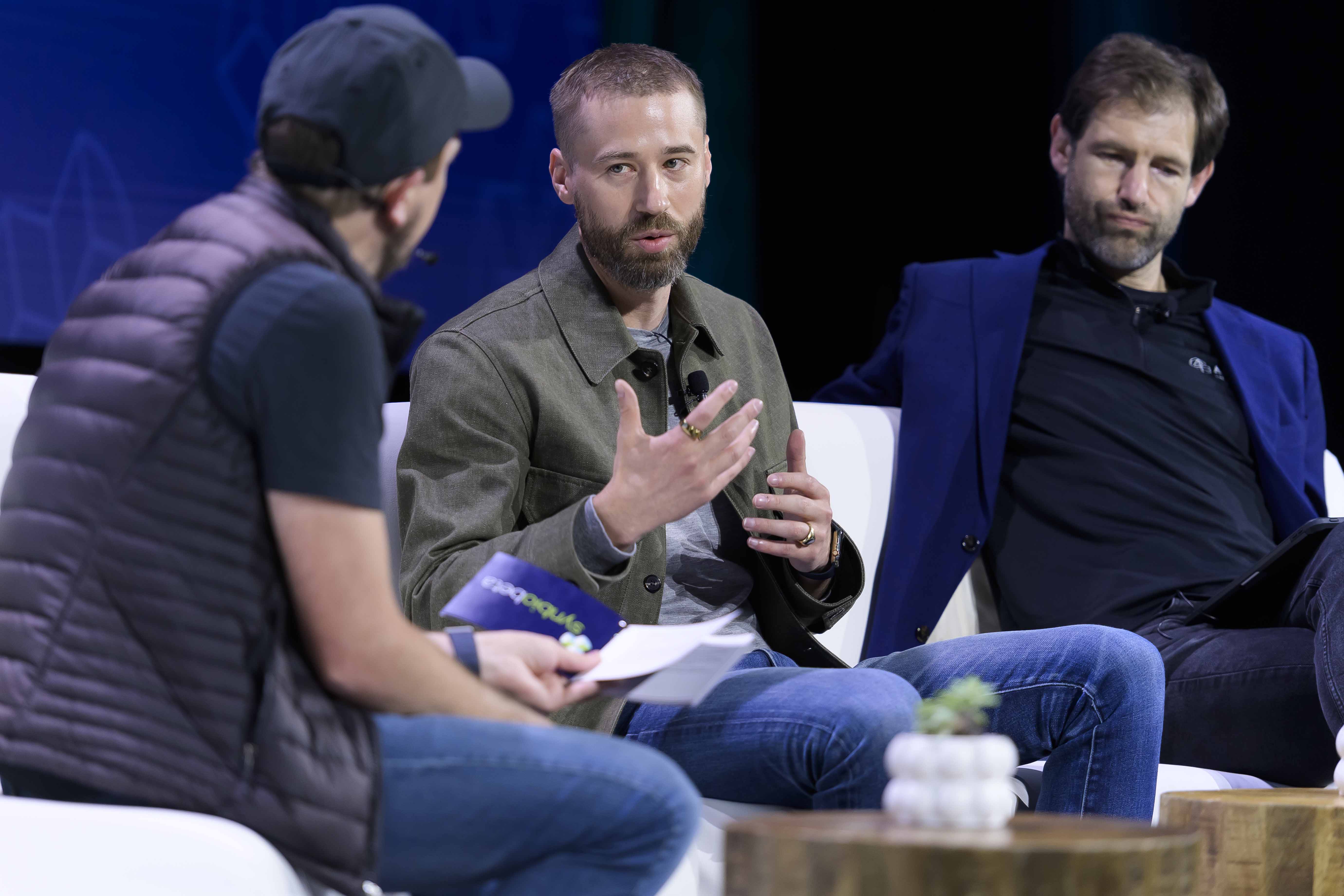
Another exciting announcement from LabGenius came on the heels of the conference. The antibody drug discovery company has raised a £35 million (44 million USD) Series B round led by M Ventures, the corporate venture capital arm of science and technology company Merck. LabGenius has created an AI-powered closed-loop discovery platform that can independently design, conduct, and learn from experiments. The platform enables rapid identification of high-performing antibodies that are unlikely to be discovered through conventional methods.
David Brookes, Senior ML Scientist at Dyno Therapeutics, delivered a lightning talk on using generative AI to improve the delivery of therapeutic loads to cells and organs for effective gene therapies. In 2021, Dyno Therapeutics closed a $100 million Series A round led by Andreessen Horowitz to develop new AAV vectors for their gene therapy platform. The company also shared its progress and key takeaways from the last couple of years during a Lunch and Learn session on the last day of the conference.
Revolutionizing Enzyme Engineering
When it comes to protein design, enzyme engineering has been one of the more sought-after applications because of how important enzymes are for nearly every imaginable application of synthetic biology and biotechnology. Enzymes are nature’s nano-machines that catalyze chemical reactions. However, as Matthew Thompson, Senior Business Development and Innovation Manager at Biomatter, said in a lightening talk, “Natural enzymes are just not designed for the industrial context that we're trying to employ enzymes in today.”
Biomatter is addressing that challenge by designing better enzymes using a combination of AI- and physics-based tools. The Biomatter team calls themselves ‘Protein Architects’: their approach focuses on building enzymes from the ground up, with the ideal specifications in mind. Their Intelligent Architecture™ platform enables simultaneous optimization of enzyme activity, specificity, thermal stability, solubility, and other properties, such as sequence redesign for IP purposes. Having worked in the enzyme engineering space since 2019, Biomatter has partnered with ThermoFisher Scientific, BASF, ArcticZymes Technologies, and EnginZyme.
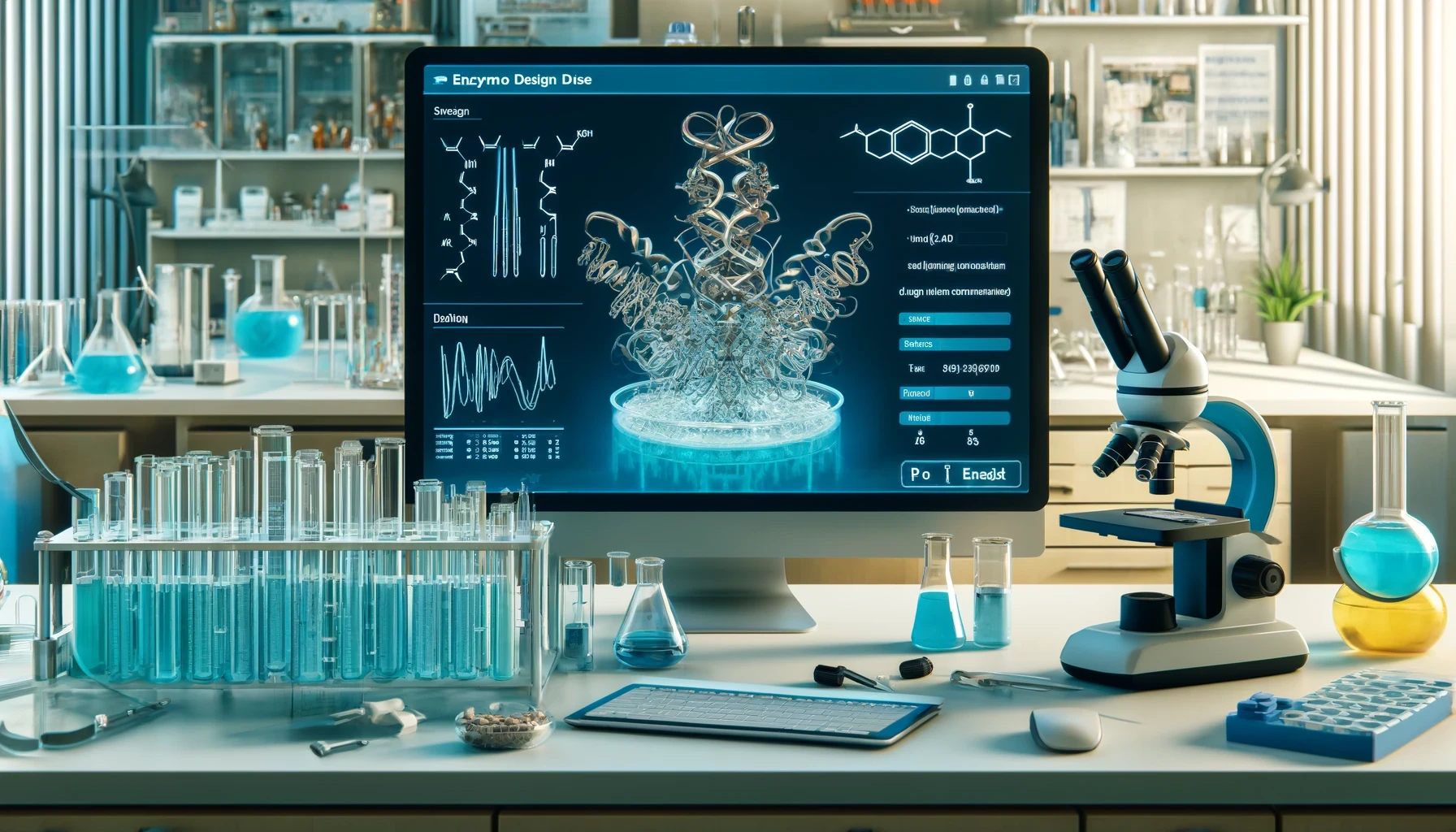
Cradle is another company leading the field of AI-powered enzyme engineering. Cradle came out of stealth in November 2022 with a $5.5 million seed round. A year later, they announced a successful $24 million series A round. The company has now grown to 40 people spread across Amsterdam and Zurich. Cradle’s team consists of machine-learning experts and wet-lab scientists who generate biological data that Cradle uses to train and refine its models.
Over the last year and a half, Cradle has established partnerships with Twist Biosciences, Johnson&Johnson Innovative Medicines, Novonesis, Manus Bio, Grifols, and Ginkgo Bioworks. Cradle is also part of an ecosystem of dozens of partners that joined Ginkgo’s Technology Network. The integration of Cradle’s generative protein design services with Ginkgo’s Foundry capabilities enables end-to-end solutions for customers and dramatically accelerates design cycles.
Other generative AI protein design companies represented at SynBioBeta 2024 included Ailurus and Quantum Sky. Ailurus is providing data-driven solutions for protein engineering and production, with an impressive portfolio of 130+ projects completed to date. Quantum Sky enables both protein and RNA functional prediction powered by their SkyEngine platform, which combines generative AI and Quantum Mechanics AI models.
Open-Source AI
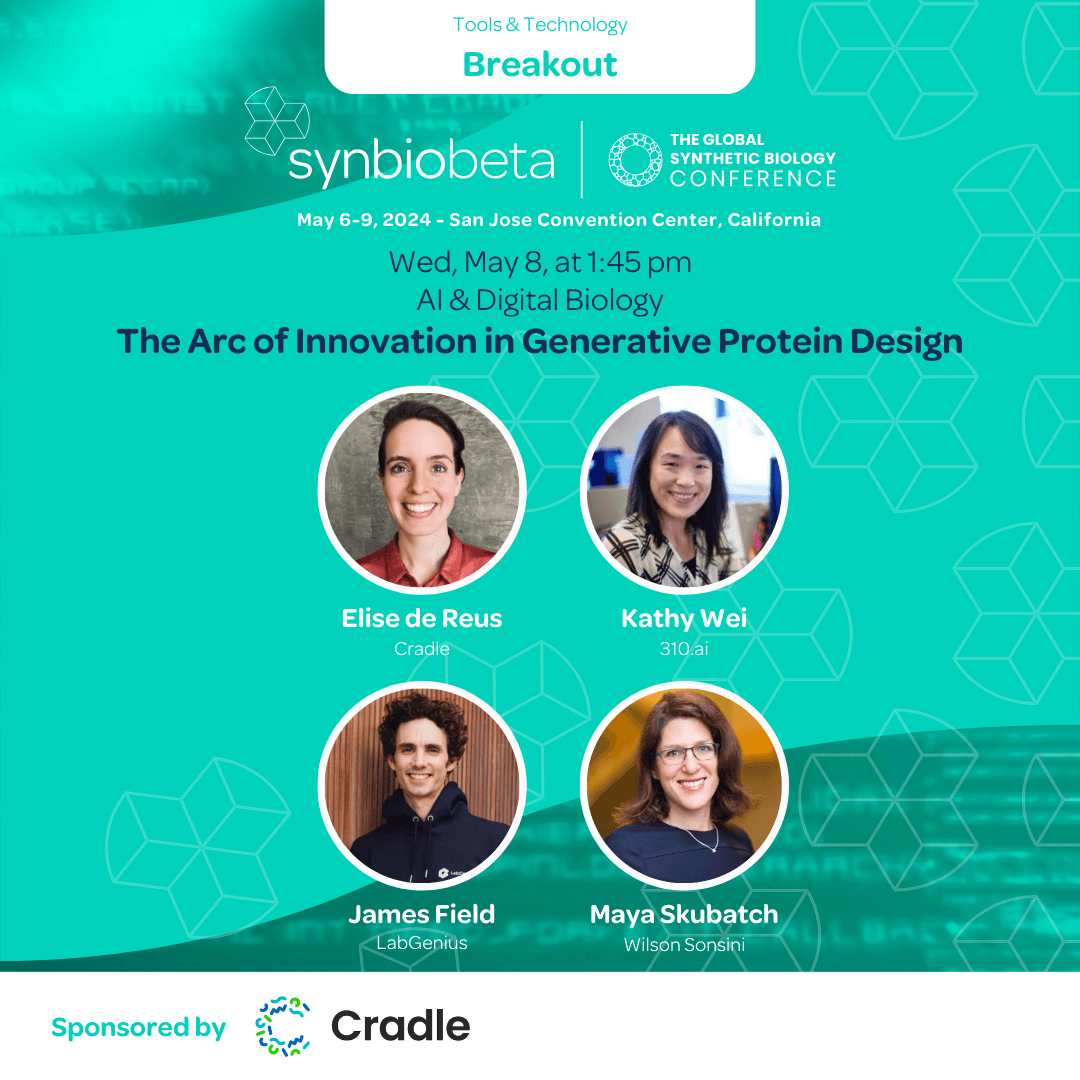
The importance of making AI algorithms and training data more accessible was a big topic of conversation among the conference attendees. Kathy Wei, co-founder and CSO of 310 AI, expressed this sentiment in a panel titled ‘The Arc of Innovation in Generative Protein Design’ moderated by Elise de Reus, one of the co-founders of Cradle: “There are so many creative smart people out there,” said Wei. “If we enable them with resources to more intimately understand biology, they could do amazing things, and I'm really excited to see what they come up with.”
310 AI was started by a team of scientists who believe that the convergence of generative AI and biology is one of the most consequential inflection points in human history. In an effort to democratize this tool, 310 AI has even created an AI Chat that lets you design molecules by typing in a prompt. Similarly, DeepChain™ from InstaDeep enables protein design on the cloud and requires no ML expertise from the users. InstaDeep has been building an open-source ecosystem of different apps that users can try out for free.
In the spirit of open-source innovation, Ginkgo has opened up access to its Foundry data with a new Lab Data As A Service offering. Access to high-quality experimental data is essential for developing robust AI models and is often the limiting factor for companies. At this year’s Ferment event, Jason Kelly, co-founder, and CEO, announced that Ginkgo will offer antibody development and enzyme performance assays to the community royalty-free.
Changing the Organizational Culture
Besides improving access to data and technologies, one of the hurdles to introducing a new paradigm of AI-driven innovation is organizational structure. During The Arc of Innovation in Generative Protein Design panel, de Reus asked Kathy Wei and James Field, CEO & Founder LabGenius, what they thought were the biggest challenges on the road to the adoption of AI technologies.

Field thinks the challenges fall into three categories. The first one relates to data: getting the right kinds of data and enough of it. The second falls into the category of culture: creating deeply integrated interdisciplinary teams that can tackle complex problems at the intersection of data and biology. The third one deals with emotions: accepting the new paradigm of innovation and redefining the role of a scientist and their involvement in the discovery process.
Wei agrees that organizational culture plays a paramount role. She adds that successful adoption of this powerful technology requires accepting that AI offers advantages that are not intuitive to us and can help tackle the challenges that human scientists cannot. The adoption process may require changes to the processes and rules of the organization. Still, ultimately, this new technology can provide a lot of added value to everyone in the company.
As I chatted with Elise de Reus after the panel, and she added her perspective:
“It's not like machine learning comes and takes the scientist’s job,” she said. “Instead, it triggers new types of questions like ‘What does the performance of these AI-generated candidates tell us about the protein's mechanism?’ or ‘What would an appropriate starting point be?’ It’s more like a partnership. AI is really good at helping customers get to a place where the product meets all the criteria for being used in the final application.”
Needless to say, we are all looking forward to the breakthrough this technology promises to bring.
